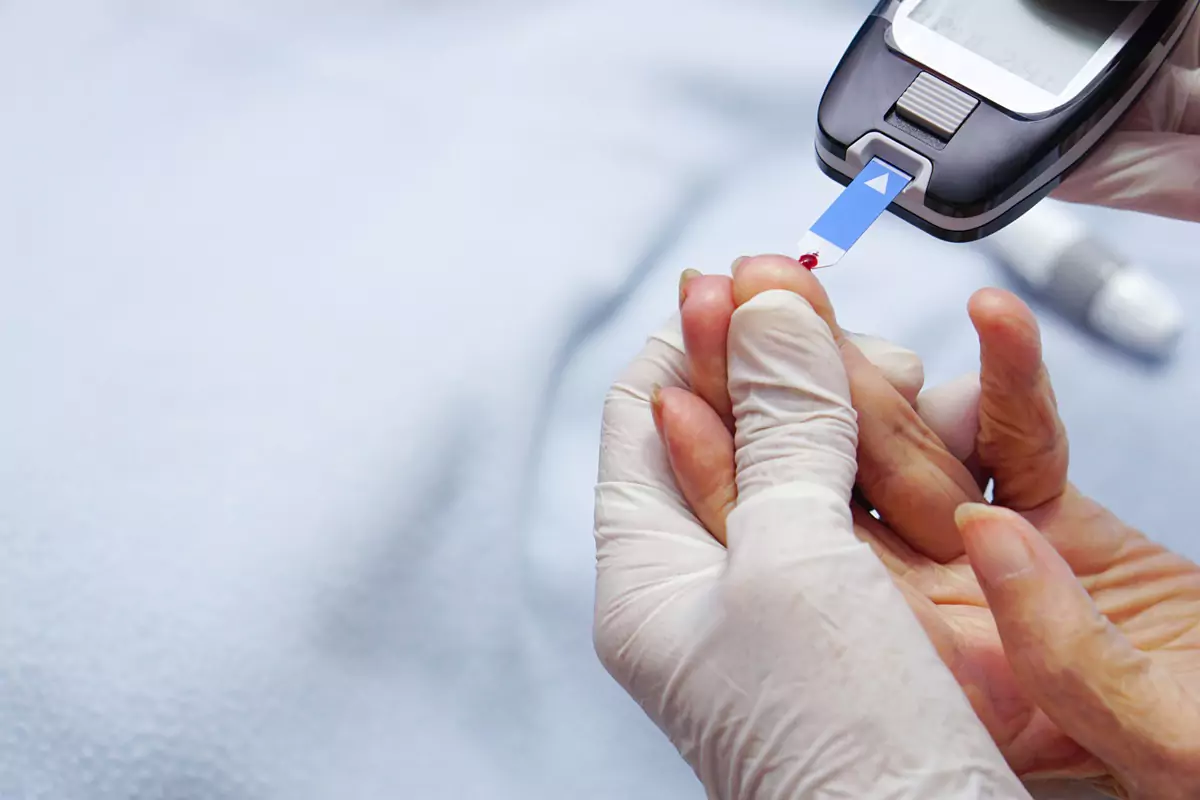
UP TO 40% OFF SITEWIDE






11 Key Strategies to Avoid Diabetes Complications


Diabetes is a chronic condition affecting millions worldwide, characterized by the body’s inability to produce enough insulin, use insulin effectively, or both. While managing diabetes can be challenging, you can significantly reduce the risk of complications by adopting a healthy lifestyle and adhering to appropriate medications. These steps are essential for keeping blood sugar levels in check and maintaining overall well-being.
1. Diet
A balanced diet is the foundation of diabetes control. Nutrient-dense foods help stabilize blood sugar, improve cholesterol levels, support weight management, and reduce the risk of complications.
Prioritize whole foods such as whole grains, vegetables, fruits, lean proteins, and healthy fats. These provide fiber, which slows glucose absorption and helps prevent spikes. Highly processed foods, such as cakes, cookies, chips, and sugary drinks, should be limited, as they contain refined carbohydrates and added sugars that rapidly raise blood glucose.
Consistency matters. Eating regular meals at similar times each day helps regulate blood sugar patterns. Portion control is equally important; even healthy foods can cause elevations when consumed in excess. Many patients benefit from working with a registered dietitian to build a realistic, personalized meal plan.
2. Exercise
Regular physical activity improves insulin sensitivity, allowing cells to use glucose more efficiently. It also lowers blood pressure, improves cholesterol levels, supports weight control, and reduces stress.
You don’t need extreme workouts. Walking, cycling, swimming, or strength training done consistently provides meaningful benefits. Beyond blood sugar control, physical activity protects against complications such as nerve damage, kidney disease, and cardiovascular problems while improving sleep and mental well-being.
3. Stress Management
Stress raises cortisol levels, which directly increases blood sugar. Chronic stress can quietly sabotage diabetes control, even when diet and medication are optimized.
Simple, repeatable stress-reduction practices make a difference. Exercise, meditation, deep breathing, yoga, and relaxing hobbies all help calm the nervous system and stabilize glucose levels. The goal isn’t eliminating stress, it’s preventing it from staying elevated.
4. Blood Sugar Testing
Checking blood sugar helps identify patterns, understand food responses, and detect problems early. The ideal frequency depends on your treatment plan.
Some people need multiple daily checks (before and after meals), while others may only need once or twice daily. What matters most is timing and consistency. Your doctor or diabetes educator should guide you on when and how often to test based on your individual risk profile.
5. Medications
Medications are necessary to maintain safe blood sugar levels and prevent complications. Common options include:
- Insulin: Often required for Type 1 diabetes to regulate blood sugar.
- Metformin: Lowers blood sugar by reducing liver glucose production and increasing insulin sensitivity.
- Sulfonylureas: Stimulate the pancreas to produce more insulin.
- DPP-4 inhibitors: Decrease the breakdown of incretin hormones to stimulate insulin production.
- GLP-1 receptor agonists: Stimulate insulin release and slow food absorption.
- SGLT2 inhibitors: Block glucose reabsorption in the kidneys, allowing excretion via urine.
Ensure you understand how to take these (e.g., with food or at specific times) and follow your healthcare provider’s instructions precisely.
6. Regular Doctor Visits
Routine doctor visits allow monitoring of A1C levels and early detection of complications involving the eyes, kidneys, nerves, and heart.
For instance, if blood sugar levels are off-target, your doctor can adjust your plan immediately. Or, they can spot early signs of issues, preventing them from becoming serious. They’re also a chance to review diet, activity, and stress strategies to keep your plan realistic and sustainable.
7. Smoking Cessation
Smoking worsens diabetes outcomes. It raises blood sugar, increases insulin resistance, narrows blood vessels, and accelerates complications such as neuropathy and heart disease.
Quitting improves circulation, lung health, and glucose control (including lower HbA1c levels). Many people succeed with a combination of counseling, behavioral support, and medication.
8. Vaccinations
Diabetes weakens the immune system, increasing susceptibility to infections. Vaccinations are a crucial protective step. Key vaccines include:
-
Influenza: The flu can lead to pneumonia, hospitalization, and dangerous blood sugar fluctuations (hyperglycemia or hypoglycemia).
-
Pneumococcal: Protects against pneumonia, meningitis, and other serious infections that carry a higher risk of death for diabetics.
-
Hepatitis B: Diabetics are at increased risk for Hepatitis B, which can lead to cirrhosis and liver cancer.
-
Other Vaccines: Patients over 60 may need the shingles vaccine, and travelers may require region-specific immunizations.
9. Foot Care
Nerve damage and poor circulation make foot problems especially dangerous for people with diabetes. Minor injuries can escalate quickly if left untreated.
Daily foot care includes inspecting daily for cuts, blisters, redness, or swelling, washing with warm water and mild soap. Dry thoroughly after, moisturize (avoid between toes!), trim nails carefully, and wear properly fitted shoes and breathable socks (cotton or wool). Avoid tight elastic bands and never go barefoot.
See a podiatrist promptly for ulcers, infections, corns, calluses, bunions, or persistent pain.
10. Managing Related Conditions
Diabetes rarely exists alone. Managing related conditions is essential for preventing complications.
High blood pressure, hyperlipidemia, and high cholesterol increase the risk of vessel damage, heart disease, stroke, and kidney disease, and should be managed aggressively via diet, exercise, and medication.
Eye exams are necessary to monitor for retinopathy, cataracts, and glaucoma. Oral health matters, too. Gum disease can worsen blood sugar control. Maintain proper dental hygiene and schedule regular check-ups.
11. Consider Supplements
While not a substitute for medication or a healthy lifestyle, certain supplements may offer additional support. Always consult a doctor before starting supplements, as some may interact with medications.
Beneficial Supplements:
-
Alpha-lipoic acid (ALA): May improve insulin sensitivity and reduce nerve damage in Type 2 diabetes.
-
Cinnamon, Chromium, Magnesium, and Omega-3 fatty acids: Have shown promise in helping manage symptoms.
Final Thoughts
Diabetes requires a lifetime of management. Maintaining healthy blood sugar levels is the only way to avoid complications such as nerve damage, kidney disease, and heart disease. By following these strategies, you not only keep your diabetes under control but also improve your overall quality of life for years to come.
About The Author
Meet Dr. Ahmet Ergin a highly skilled and dedicated endocrinologist with a passion for diabetes care. Dr. Ergin earned his medical degree with honors from Marmara University in Istanbul. He completed internal medicine residency and endocrinology fellowship at Cleveland Clinic.
Dr. Ergin is board-certified in Internal Medicine, Endocrinology, Diabetes and Metabolism due to his vast medical expertise. He's a certified diabetes educator, author of "The Ultimate Diabetes Book," and founder of "the SugarMD YouTube channel."
Dr. Ergin offers exceptional diabetes care to his patients in Port Saint Lucie, FL, helping them manage effectively. Disclaimer: These statements have not been evaluated by the Food and Drug Administration. Information on this website isn’t intended to treat, cure or prevent any disease. Discuss with your doctor and do not self-treat.
Written By Dr. Ahmet Ergin
466 total articles
Meet Dr. Ahmet Ergin, a highly skilled and dedicated endocrinologist with a passion for diabetes care. Dr. Ergin earned his medical degree with honors from Marmara University in Istanbul. He completed internal medicine residency and endocrinology fellowship at Cleveland Clinic. Dr. Ergin is board-certified in Internal Medicine, Endocrinology, Diabetes, and Metabolism due to his vast medical expertise. He's a certified diabetes educator, author of “The Ultimate Diabetes Book,” and founder of “the SugarMD YouTube channel.” Dr. Ergin offers exceptional diabetes care to his patients in Port Saint Lucie, FL, helping them manage effectively. For a closer look into his insights and experiences, connect with Dr. Ahmet Ergin on LinkedIn, Instagram, and YouTube.”
Disclaimer: These statements have not been evaluated by the Food and Drug Administration. Information on this website isn't intended to treat, cure or prevent any disease. Discuss with your doctor and do not self-treat.
Products













